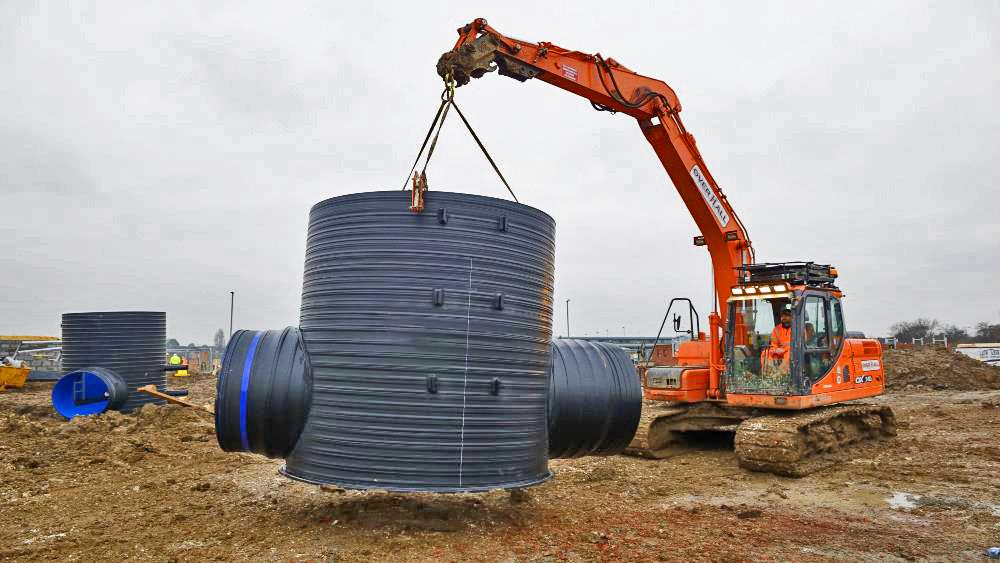

The pandemic has highlighted the benefits of offsite construction, where modular systems from bathroom pods to drainage inspection chambers can be safely manufactured away from a construction site and delivered as complete units.
Driving the recovery of the construction and built environment sectors is a key priority of the recently released Construction Recovery Plan from the Construction Leadership Council. While the Council wants the recovery to be agile and fast-moving, it also advocates building safety and professionalism, and focuses on transformation, value and partnership to sustain the economic recovery. Adopting new technologies and techniques is part of this transformation, and offsite manufacturing is therefore growing in popularity as its benefits begin to be really appreciated.
Plastic pipes are extensively used in housing and commercial construction. As part of an innovation drive to create further value in the supply chain, manufacturers of these products are developing ‘offsite’ bespoke fabricated systems that reduce the need for often complex on-site assembly. Not only does this reduce site time, it also reduces the resources required to assemble on site, and makes the site environment safer for operatives with fewer people involved in assembly and installation.
As Richard Hill of the BPF Pipes Group comments, “Traditional construction methods involve more people and are more labour-intensive on site, whether in housing or commercial developments. Using offsite construction significantly reduces both the number of people who have to be in close proximity – a key consideration at present – and saves time on site.”
Examples of this growing innovative approach include the modular construction of items like bathrooms for student accommodation or flats that are being delivered directly to site in complete pods, drainage and sewerage inspection chambers and manholes that can be constructed offsite and transported to the point of installation, and other items like water supply kits, drainage stacks for water risers and soil stacks that can be pre-assembled and supplied to site. Underfloor heating manifolds – pre-assembled for direct installation into utility cupboards – are also available, again saving labour and time on site.
Benefits of this modular offsite approach include well-constructed modules developed and assembled in ideal factory conditions, whilst controlling social distancing protocols. Manufacturers of plastic pipes and fittings talk to and work with designers and contractors to configure pre-assembled units for ease of final installation.
Offsite construction can deliver huge cost benefits around on-site productivity with a reduction in resources required, such as fewer people involved, less time to install, less equipment required on site, and fewer boxes of components to carry around the site.
A flexible approach to assembly applies to sites too. For example work benches can be set up on the ground floor of developments so as to keep the fabricating processes well away from the area being worked on, with benefits including improved productivity, social distancing and the ability to work with more complex designs.
Richard Hill thinks that with the future construction industry landscape likely to be different, new ways of working including offsite fabrication are here to stay. “The enforced changes have seen offsite benefits leapfrogging forward and huge progress has been made. This approach goes hand in hand with the digital world – it all benefits the integrity of build and investment in the right infrastructure.”
The current challenges facing the construction industry – including safe access, safe ways of working, the social distancing space required on site and planning work schedules to allow for this – means benefits brought by techniques like offsite manufacturing are bound to grow in importance and popularity.